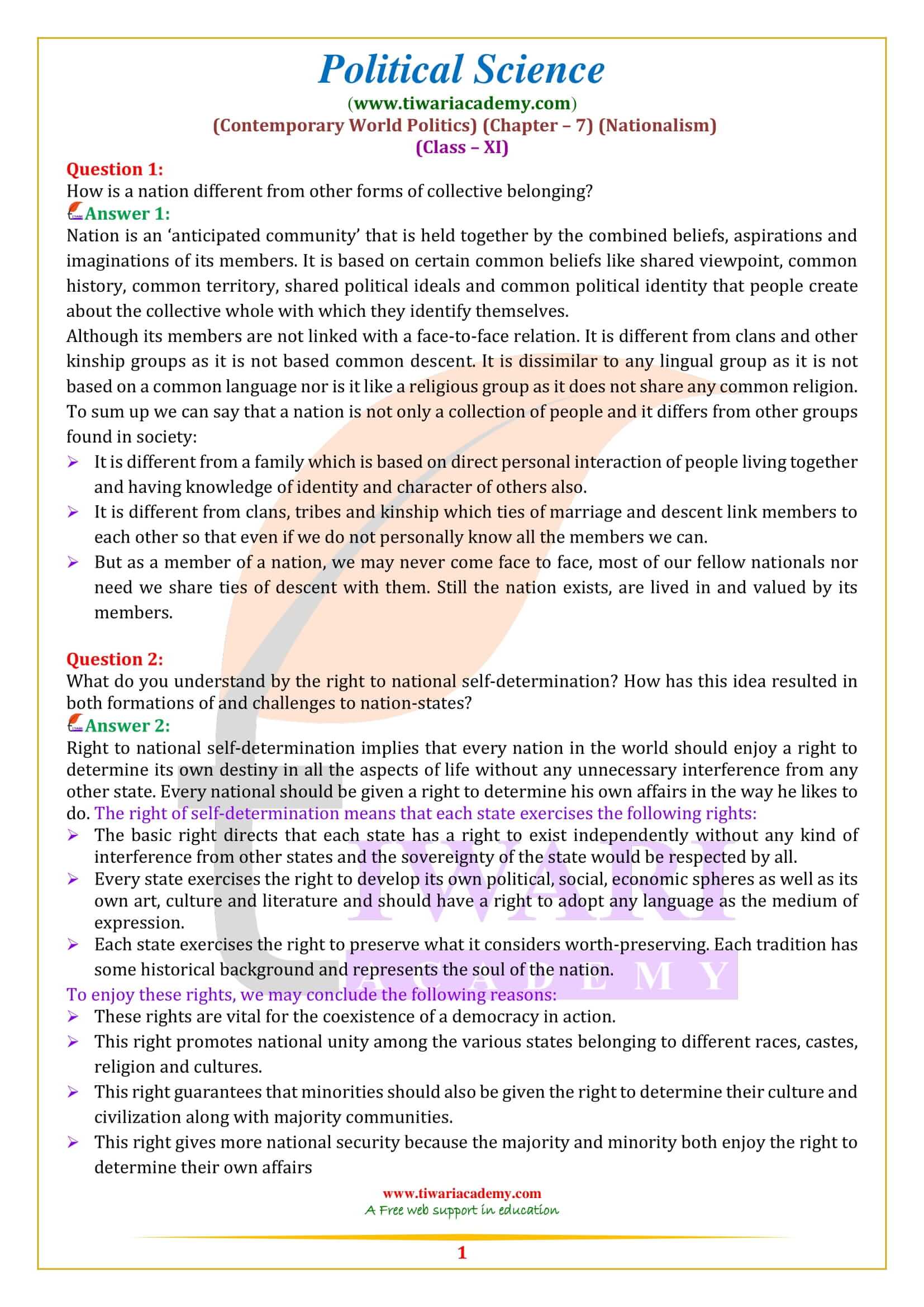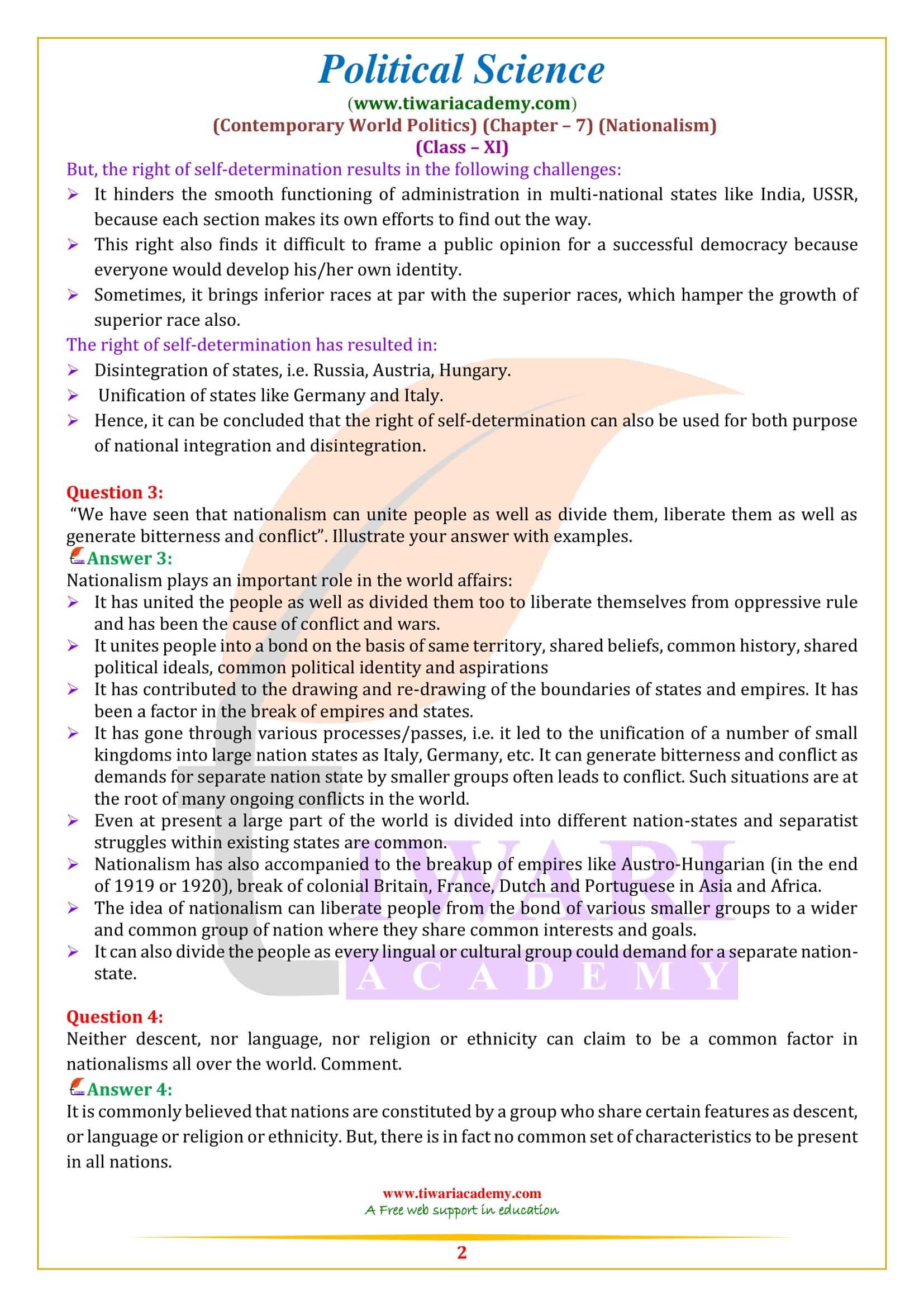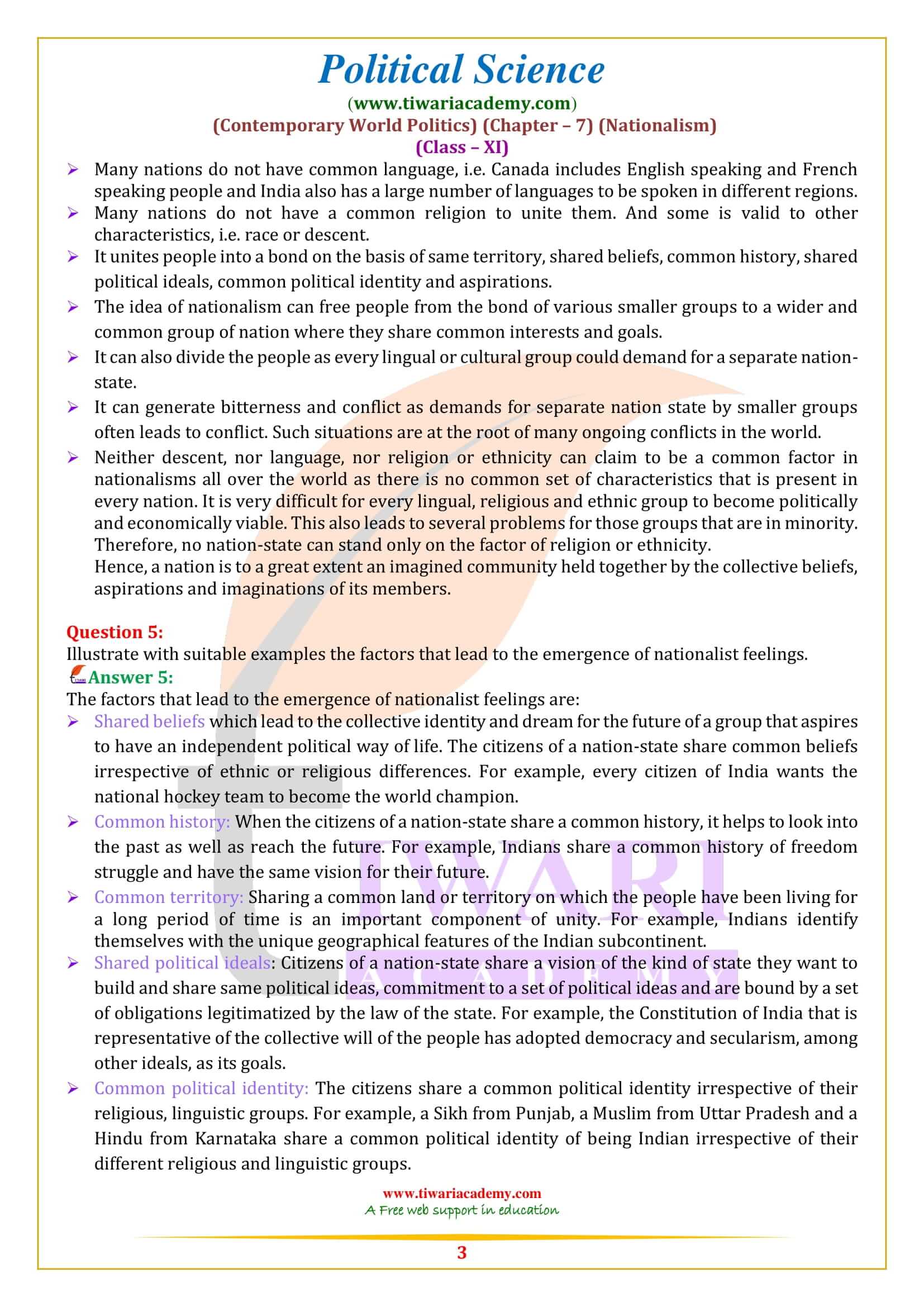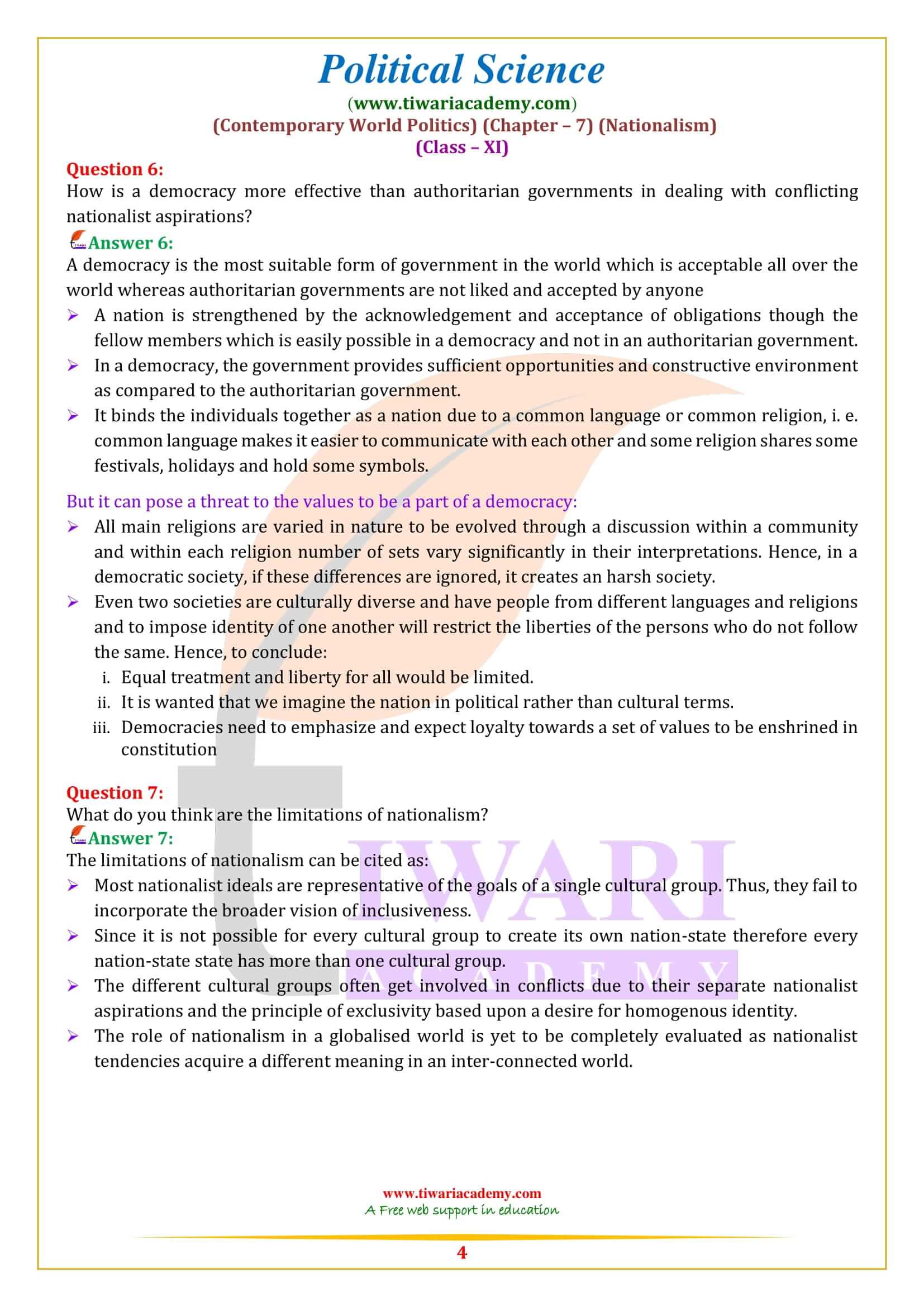NCERT Solutions for Class 11 Political Science Chapter 7 Nationalism in English and Hindi Medium prepared and updated for new academic session 2025-26. Question answers of class 11 Political Science chapter 7 taken from Political Theory are given here with extra important questions helpful for school exams.
NCERT Solutions for Class 11 Political Science Chapter 7
How is a nation different from other forms of collective belonging?
Nation is an ‘anticipated community’ that is held together by the combined beliefs, aspirations and imaginations of its members. It is based on certain common beliefs like shared viewpoint, common history, common territory, shared political ideals and common political identity that people create about the collective whole with which they identify themselves.
Although its members are not linked with a face-to-face relation. It is different from clans and other kinship groups as it is not based common descent. It is dissimilar to any lingual group as it is not based on a common language nor is it like a religious group as it does not share any common religion.
To sum up we can say that a nation is not only a collection of people and it differs from other groups found in society:
- It is different from a family which is based on direct personal interaction of people living together and having knowledge of identity and character of others also.
- It is different from clans, tribes and kinship which ties of marriage and descent link members to each other so that even if we do not personally know all the members we can.
- But as a member of a nation, we may never come face to face, most of our fellow nationals nor need we share ties of descent with them. Still the nation exists, are lived in and valued by its members.
What do you understand by the right to national self-determination? How has this idea resulted in both formations of and challenges to nation-states?
Right to national self-determination implies that every nation in the world should enjoy a right to determine its own destiny in all the aspects of life without any unnecessary interference from any other state. Every national should be given a right to determine his own affairs in the way he likes to do. The right of self-determination means that each state exercises the following rights:
- The basic right directs that each state has a right to exist independently without any kind of interference from other states and the sovereignty of the state would be respected by all.
- Every state exercises the right to develop its own political, social, economic spheres as well as its own art, culture and literature and should have a right to adopt any language as the medium of expression.
- Each state exercises the right to preserve what it considers worth-preserving. Each tradition has some historical background and represents the soul of the nation.
To enjoy these rights, we may conclude the following reasons:
- These rights are vital for the coexistence of a democracy in action.
- This right promotes national unity among the various states belonging to different races, castes, religion and cultures.
- This right guarantees that minorities should also be given the right to determine their culture and civilization along with majority communities.
- This right gives more national security because the majority and minority both enjoy the right to determine their own affairs.
The right of self-determination results in the following challenges:
- It hinders the smooth functioning of administration in multi-national states like India, USSR, because each section makes its own efforts to find out the way.
- This right also finds it difficult to frame a public opinion for a successful democracy because everyone would develop his/her own identity.
- Sometimes, it brings inferior races at par with the superior races, which hamper the growth of superior race also.
The right of self-determination has resulted in:
- Disintegration of states, i.e. Russia, Austria, Hungary.
- Unification of states like Germany and Italy.
- Hence, it can be concluded that the right of self-determination can also be used for both purpose of national integration and disintegration.
Neither descent, nor language, nor religion or ethnicity can claim to be a common factor in nationalisms all over the world. Comment.
It is commonly believed that nations are constituted by a group who share certain features as descent, or language or religion or ethnicity. But, there is in fact no common set of characteristics to be present in all nations.
- Many nations do not have common language, i.e. Canada includes English speaking and French speaking people and India also has a large number of languages to be spoken in different regions.
- Many nations do not have a common religion to unite them. And some is valid to other characteristics, i.e. race or descent.
- It unites people into a bond on the basis of same territory, shared beliefs, common history, shared political ideals, common political identity and aspirations.
- The idea of nationalism can free people from the bond of various smaller groups to a wider and common group of nation where they share common interests and goals.
- It can also divide the people as every lingual or cultural group could demand for a separate nation-state.
- It can generate bitterness and conflict as demands for separate nation state by smaller groups often leads to conflict. Such situations are at the root of many ongoing conflicts in the world.
- Neither descent, nor language, nor religion or ethnicity can claim to be a common factor in nationalisms all over the world as there is no common set of characteristics that is present in every nation. It is very difficult for every lingual, religious and ethnic group to become politically and economically viable. This also leads to several problems for those groups that are in minority. Therefore, no nation-state can stand only on the factor of religion or ethnicity.
Hence, a nation is to a great extent an imagined community held together by the collective beliefs, aspirations and imaginations of its members.
What do you think are the limitations of nationalism?
The limitations of nationalism can be cited as:
- Most nationalist ideals are representative of the goals of a single cultural group. Thus, they fail to incorporate the broader vision of inclusiveness.
- Since it is not possible for every cultural group to create its own nation-state therefore every nation-state state has more than one cultural group.
- The different cultural groups often get involved in conflicts due to their separate nationalist aspirations and the principle of exclusivity based upon a desire for homogenous identity.
- The role of nationalism in a globalised world is yet to be completely evaluated as nationalist tendencies acquire a different meaning in an inter-connected world.





